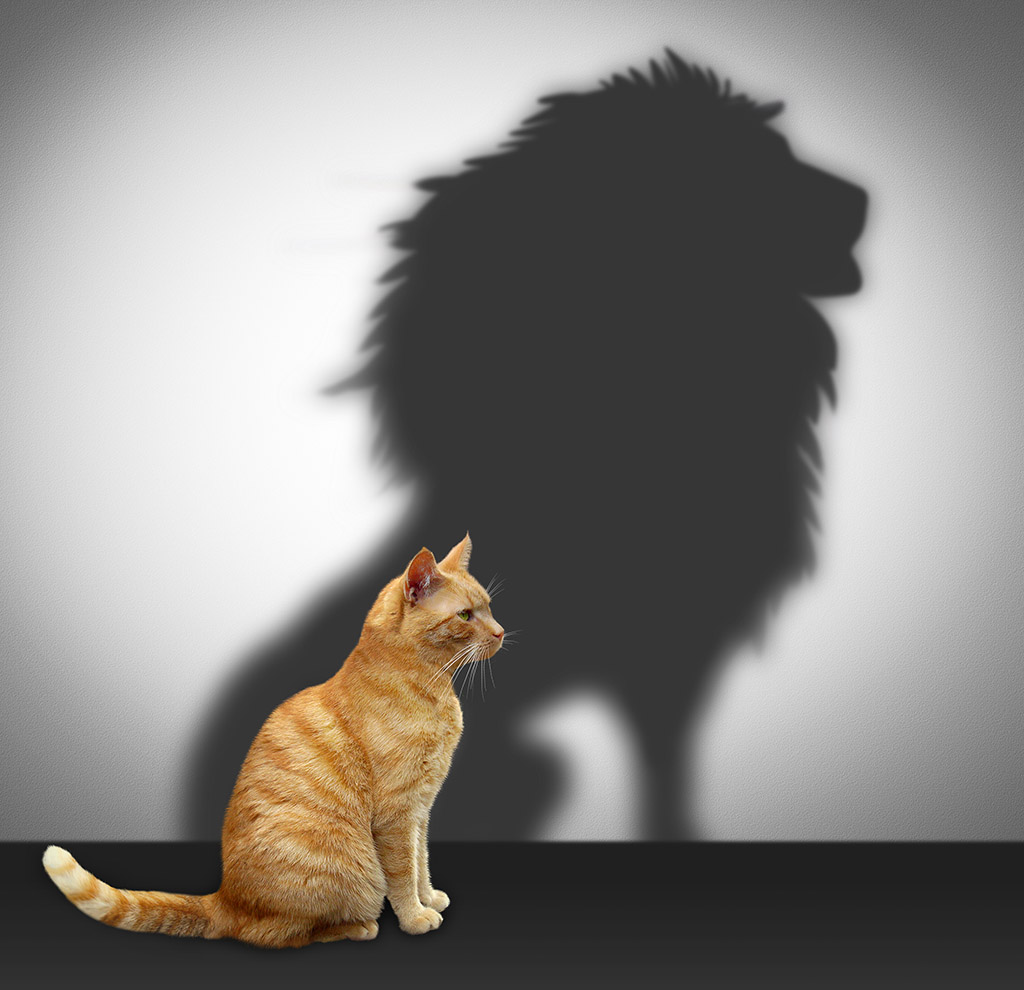Quiet Waterfall
We have all been living with busy, overstimulated, distracted, and overwhelmed minds, due to our life’s demands. This time of the year, even more so…
Give yourself a little opportunity from time to time to connect with nature. Nature allows our neurological connections to form a sense of calmness and general satisfaction with life in the present moment. I wish you many nature moments for this coming year!
Here is a little present for you. This three minutes video of magical nature will hopefully give you an opportunity to breath and find peacefulness in your heart. We filmed this water flowing behind a sheet of ice down a rock face on a wintry hike in the Camden Hills in Maine.
Please take a moment to sit back, put the video on full screen, enough sound, and allow yourself a moment of relaxation.
Happy Holidays!
Fear
The celebration of Halloween brings my thoughts to a subject that is of ultimate importance, and not trivial, for our well being and success: fear. We all have fears and it is a common feeling, wanting it or not, and more often than we want, our choices in life, and our daily habits, are driven by fear. Many times we are not aware that there is this undercurrent of fear behind our motives in life. Do we want to live our lives based on fear? Are you aware of what is behind your motive in life?
Fear is not a bad feeling; it gives us awareness of danger and protects us from harm. To be able to differentiate if our fears are based on reality, real present dangers, or trauma experiences, ghosts from the past, is a skill that requires practice.
We usually experience fear when we think of past experiences or future possibilities. These habits of past/future thinking restrict our lives and block us from being courageous and achieve fulfillment and happiness. It is not easy practice to think and live at the present moment, but the more we practice the more we get better at it. Our brains tend to react to fear by going into freeze or panic mode. This state of freeze or panic is not conducive to advancement, s uccess and happiness.
uccess and happiness.
If we keep experiencing that fear is the undercurrent behind our choices and habits in life, then this is a signal we need to start dealing with it. The tricky business is that often we are not even aware we are feeling fears, it can be masked by other feelings such as anxiety and tension. The more we work on self-awareness, the better we will have a deeper understanding and clarity of our daily choices.
Finding a safe environment and someone you trust, and reserving time to explore yourself, are a good beginning to understand your choices and your fears. To feel your fears in safety, experience and process them, is fundamental for our life and career advancement.
Here are some suggestions on how to begin to approach fear:
- Slow down and reserve some time for increasing self-awareness.
- Take a good inventory of your fears, without judgment, by asking questions such as: Am I aware of my fears? When are my fears happening?
- Take a good look at your daily actions and choices by asking yourself: Are my actions and choices based on fears?
- Try to bring awareness of how frequently you experience fears, and what triggers them.
- Ask yourself: “How do I feel and react when I am experiencing fear?”
By reserving this time for self-reflection we will be bringing ourselves to the present moment, and we will be practicing fearlessness. False courage by trying to be though and not embracing our fears and vulnerabilities is not a wise form of fearlessness. To be fearless is to embrace and confront our own fears.
I hope you will have a fear embracing Halloween!
Self-Esteem and personal power
 When we think of successful people, we do not associate them with low-self esteem. Self-esteem has to do with self: how we think of ourselves, what are our opinions of ourselves, how do we perceive ourselves. Many people with successful careers, if questioned further about what they think of themselves, might answer that they have a low self-image.
When we think of successful people, we do not associate them with low-self esteem. Self-esteem has to do with self: how we think of ourselves, what are our opinions of ourselves, how do we perceive ourselves. Many people with successful careers, if questioned further about what they think of themselves, might answer that they have a low self-image.
Many of us have minimum self-appreciation, enough to do good work and have accomplishments, but not sufficient to live to our fullest potential. Unfortunately most of us would be embarrassed to say out loud how we actually describe ourselves internally.
For most of us, when we check in with ourselves, we realize that our internal stories about our self-perceptions are limiting. We have a tendency to have many self-labels, and these labels can sometimes be useful, but they are not always helpful. Many of the ideas about ourselves were acquired while growing up. We incorporate our labels from our family of origin, our culture, gender, social class, religion… All these aspects impacts how we view ourselves.
These self-labels can feel constraining or comforting, but regardless, they keep us from experiencing the vastness of our possibilities in life. A certain amount of self-doubt is normal, and even healthy, but not if it is restraining us from achieving our full potential. When we are not aware of the labels and self-conceptions we have created over the years, we live under the influence of these perceptions. Wouldn’t it be so liberating, if from time to time we would permit ourselves to encounter the infinite of possibilities? Thinking and permitting ourselves to go beyond labels can assist our dreams and expand our potential. We may discover a new excitement in being alive!
Let us reflect, so we can gather more information about our labels. Taking some time to think how people in our world see us and think how we see ourselves can be essential information for transformation.
Here are some questions to start:
- What are the words/labels we use to describe ourselves?
- Would it feel liberating if we think of these labels as being temporary?
- Can we discard some of these labels for a day or so? How would it feel?
Becoming aware of how we perceive and describe ourselves can empower us to make conscious choices for how we want to live our lives.
These concepts of reflection, self-assessment and mapping, can also be transported to the organizational sphere. How many institutions could use a good non-biased view, to identify areas that are restraining full success and effectiveness? An organization cannot change if areas of needs are not identified first. We can’t change if we don’t know what to change! A good consultant can provide assessment of people, relationships and dynamics, much needed for further development of the institution.
Good Listening and Communication Skills
Regardless of culture, gender, age, profession…everybody seeks to be understood from his or her point of view. When we share our thoughts and feelings we don’t want logic, advice, reasons, or judgment. We also don’t want to be ignored, denied, or taken lightly. When we share thoughts and feelings, it is because we are looking for an understanding.
Normally, when we just get intellectual listening, we do not feel satisfied. What we crave is an understanding that comes from the heart with warmth and care. Listening is the partner skill to expressing. If we have difficulties listening we probably also have difficulties expressing.
We have been taught that having “negative” feelings is not a good thing; we should not have it. We have difficulties in sharing our thoughts and feelings, especially when we have different, strong emotions and thoughts from our peers.
In general, we have been trained that thoughts attached with strong emotions are not appropriate to share. We mistakenly think that we are less worthy, or less mature, if we have such feelings. But reality is, relationships are part of life, and conflicts are part of relationships, whether these relationships are of work, marriage, or friendship.
In the workplace it is not uncommon to experience a repression of strong feelings, which can lead to a blowup. Conflicts bring up strong feelings and thoughts, and if we don’t learn how to express such feelings, they will not go away, but actually grow. In any relationship where strong feelings and thoughts are repressed, or treated with disrespect, ultimately understanding is not achieved, therefore good listening and communication is not happening.
Studies have shown that behavior modification just doesn’t happen with a few easy steps, but is more part of a process. Communication and listening skills are part of a process of internal growth. When we want to have any internal or external modification, the more efficient way to establish the changes we want is to start by having an honest assessment. Let us start by paying attention and listening to our own selves and our environment. When do we react? When do we not listen? When do we feel not listened to? Do we have a tendency to judge others or ourselves? Do we deny our own thoughts and feelings? When is it that I react strongly? When we know well what we are doing and understand why, the steps of practicing new skills becomes more meaningful and effective.
Meetings and Time
How do we relate to time? Time is one of these topics that concerns everything we do, yet it is so subjective and complex that there is no right or wrong way, just different ways of viewing the subject. I notice how, depending on culture, we can approach time differently. Besides the cultural differences, I also notice that in meetings something more happens to people regarding time.
Why is it that with some people we feel time stretches and we accomplish a lot, while with others we feel tense and everything is rushed?
If we are always feeling rushed and with not enough time, most likely we will carry this feeling to whatever we do, being in a meeting or even in a friendship dinner. If in our mind there is no time for quiet and relaxation, then we will feel that in our activities there is not enough time to do and be.
On the other hand, if we feel in general that life provides time, and we are relaxed, then there is time and space in our mind for quiet. There is time for exploration, time is not constricted and limited, and we carry this expansion into our work and lives.
 What makes this difference in our approach of time has to do with an internal sense of how we feel about ourselves. If we struggle with insecurities, anxieties, relationships, money… time would be perceived as pressing. We don’t even realize that this perception interferes with our ability to be present and enjoy whatever and whomever we are with. If we are more certain and things are working for us, then we perceive time with more spaciousness, more presence, and expansion is available to us. Somehow our sense of time has a connection with our sense of inner well-being. How that is possible is puzzling, isn’t it?
What makes this difference in our approach of time has to do with an internal sense of how we feel about ourselves. If we struggle with insecurities, anxieties, relationships, money… time would be perceived as pressing. We don’t even realize that this perception interferes with our ability to be present and enjoy whatever and whomever we are with. If we are more certain and things are working for us, then we perceive time with more spaciousness, more presence, and expansion is available to us. Somehow our sense of time has a connection with our sense of inner well-being. How that is possible is puzzling, isn’t it?



